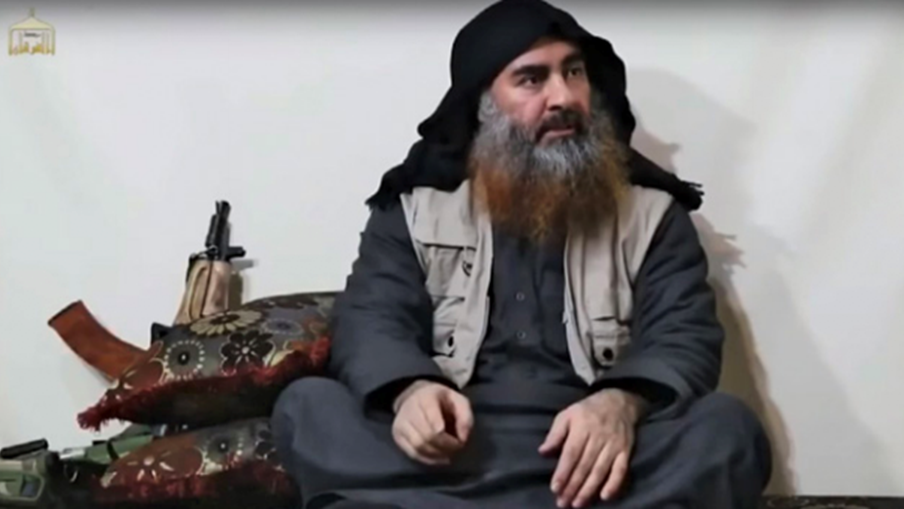Abu Bakr al-Baghdadi, the leader of Islamic State of Iraq and al-Sham (ISIS), died during a U.S.-led raid of a compound in northwestern Syria, President Donald Trump said.
Al-Baghdadi detonated a suicide device, killing himself and three of his children, Trump said Sunday morning in remarks from the White House, describing in graphic detail the raid, which took place in Idlib province, far from where he had been believed to be hiding.
“A brutal killer, one who has caused so much hardship and death, has violently been eliminated … He died like a coward. The world is a much safer place,” Trump said, thanking Russia, Turkey, Iraq, Syria and Syrian Kurdish forces for their help. Kurdish forces called it a joint operation.
Villagers told AFP the targeted house was flattened to rubble, and the area was cordoned off by Hayat Tahrir al-Sham (HTS), the group that has controlled parts of northwestern Syria since 2015 and was sanctioned in May 2018 as an alias of Jabhat Fatah al-Sham. Journalists were briefly allowed to film the site, AFP reported. Later Sunday, reports emerged saying ISIS spokesman Abu al-Hassan al-Muhajir was killed in a U.S. missile strike in Aleppo province.
The death of al-Baghdadi comes amid concern that ISIS could regroup due to the escape of hundreds of its fighters amid an offensive by the Turkish government in Syria. Trump had withdrawn U.S. forces from the region and then imposed sanctions on two Turkish ministries and three officials, but lifted the designations after a cease-fire agreement in which Turkey and Russia agreed to share control. In recent days, the U.S. military was sent back to protect Syrian oil fields.
The tip that led to the raid on al-Baghdadi came following the arrest of one of his wives and a courier, The New York Times reported. Trump said Monday he might release portions of video from the raid.
ISIS, led by al-Baghdadi, built a caliphate stretching across parts of Iraq and Syria. The group financed itself in part by forcing people living in its territory to pay taxes and taking cuts of oil deals. ISIS lost its last territorial stronghold in March. The group had evolved to a more-traditional terrorist organization long before the death of al-Baghdadi.
No successor to al-Baghdadi has officially been named. The U.S. government identified senior ISIS ideologue Amir Muhammad Sa’id Abd al-Rahman al-Mawla, who is also known as Hajji ‘Abdallah, as a “potential successor” to al-Baghdadi in an August statement announcing a reward of up to $5 million for information about him.
“While there is still work left to do to ensure ISIS’s enduring defeat, Baghdadi’s death follows the path of scores of other ISIS leaders that have been removed from the battlefield and can no longer commit heinous atrocities or spread their vile ideology of hatred to poison and recruit vulnerable minds,” said Secretary of State Mike Pompeo, in a statement.
